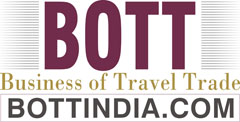Priyanka Saxena Ray

What is TCS?
TCS is a tax levied by the Indian government on the sale of certain goods and services. The tax is collected at the time of sale by the seller and is then remitted to the government. TCS is levied on various items such as luxury cars, jewellery, and overseas travel bookings.

The government has now decided to increase the TCS (Tax Collected at Source) on foreign remittances under the Liberalised Remittance Scheme (LRS). As a result, TCS on remittances for booking overseas travel packages will be hiked to 20% from the existing 5%. However, foreign education and medical treatment will not attract the hiked TCS.


Impact on Indian Tour Operators
Indian tour operators are likely to be the most affected by this increase in TCS. Tour operators generally work on a commission-based model, where they earn a commission on the total cost of the trip. The increase in TCS means that the total cost of the trip will increase, which, in today’s competitive world, will force the customer to look for cheaper avenues elsewhere. It will lead them to explore booking options from overseas tour operators.
Once the cost will go up, customers will have to pay more for their trips, which may make overseas travel less accessible for some people. Moreover, customers may start exploring other options for booking their trips, such as booking directly with airlines or hotels, or through foreign tour operators. This could lead to a decline in business for Indian tour operators, which could have wider implications for the tourism industry as a whole.
BOTT spoke to few industry leaders in the outbound sector to understand how damaging this hike in TCS will be and here is what they had to share –
 Jyoti Mayal
Jyoti Mayal
President, TAAI
“Local Tour operators are already collecting 5% TCS on the services provided by them compared to the FTOs who are not required to charge any such taxes. Now, due to this additional huge levy of TCS, the services and packages provided by the Indian travel companies shall become costlier compared to the services and packages provided by the FTO which will result in shifting of local business in favour of FTO. This will not only affect the tour operator industry run by Indian entities but also the Indian Government due to the reduced earnings. The FTO’s are neither bound to levy GST nor the proposed TCS. This will result in loss of direct taxes and indirect tax collection. With the implementation of an additional tax like GST and TCS, more and more travellers shall start adopting the practices of booking directly overseas and through online portals. The Aviation industry is already in turmoil and tourism too is getting affected due to such factors. The further increase in the TCS Rates will further aggravate the situation.
Not just that but currently, the Indian travellers book through their known travel agents and operators who are members of renowned Indian travel Associations. These Associations keep a strict check on any unethical practices and encourage their members to not book global hotel & tourism products which are unsafe. Once Indian travellers, to save the TCS & GST book directly with global companies, then that will run the risk of exposing Indian travellers to unethical, harmful and unsafe practices of global vendors.”

Vasudha Sondhi,
Managing Director
Outbound Marketing
“Increasing the rate of TCS from 5% to 20% is going to push up the cost for the buyer and will make international travel expensive. This will negatively affect the mid-market traveller for sure. As it is we are not seeing the budget and mid-market travellers as yet in large numbers due to the appreciation of dollar and Euro against the rupee. However, there are provisions where credit can be collected against tax paid but that will still make this increase a shock for travellers and travel agencies. The TCS on overseas tour programs should have been totally scrapped.”

Vikas Jain
Chief Financial Officer
Tbo.com
“TCS will render Indian travel companies uncompetitive. In the absence to force compliance of proposed TCS provisions on ‘Foreign Entities’ (i.e. Foreign agents, suppliers and websites), coupled with lack of restrictions permitting an Indian traveller to make direct payments (Credit card /Cash on arrival Payments or any other similar mode) to foreign entities, huge volumes of business will shift to such Foreign Entities. The industry is already suffering with identical issues as foreign entities are booking holidays for Indian travellers without collecting GST, rendering the cost of the package of Indian travel agents higher and uncompetitive. Another repercussion will be unemployment and forced business closure. The proposed increase in TCS amount, will lower business volumes, marginalise expenses, scaling down or worse shutting down of businesses. Eventually, this will lead to widespread job losses. Lastly, for end-travellers, this hike will lead to increased cash flow issues since the refund if any for the TCS can be claimed only while filing of annual tax returns.”
Alternatively, to aid and support the effort to track payments for foreign tour packages abroad, the government can:
(i) In order to strengthen the PAN database, PAN may be linked to a passport to monitor foreign travel abroad
(ii) Provisions of TCS may be made applicable to cases where PAN is not provided by the customer and transactions are not undertaken through normal banking channels
(iii) Enforce TCS provisions on Foreign Entities
(iv) The rate of TCS should be considerably lowered to 0.5%/1% where the customer provides PAN, respectively

Riaz Munshi
President, OTOAI
“The proposed increase in rate of TCS to 20% on the overseas tour packages has potential of impacting the business of the Indian travel agents in a big way. The proposed increase in TCS would increase the cost of overseas travel bookings to be done through Indian tour operators and giving undue advantage to foreign tour operators. Reduction in business, in a post-pandemic world, would lead to further loss in employment in an already reeling sector. With the rising costs, Indian tourists would be tempted to get the tour booked through foreign service providers or encourage cash transactions – this is not just loss for the tour operators but also potential loss of GST revenue to the Government.
Deductions, filing the TCS for travel bookings, amendments & cancellations & their subsequent reconciliation by the travellers will lead to multiple discrepancies. This will create potential for numerous small value litigations and those which will in turn threaten the credibility of the travel fraternity and also the tax administration.”

Ajay Prakash
President
Travel Agents Federation of India (TAFI)
“The unexpected increase in TCS from 5% to 20% caught the industry unawares! If it’s implemented from July 1, it will devastate the outbound tourism business. All our representations and meetings have had no effect and Indian agents and tour operators will find it impossible to compete with overseas companies or online booking sites. It’s not feasible to impose the same conditions on a company that’s not registered in India and is not subject to Indian taxation laws so, with the combination of GST and TCS, the Indian agent will end up being a whopping 26% more expensive for the identical package!
We appreciate the government’s need to expand the tax net and to nab tax evaders, but that purpose could have been fulfilled with the existing 5% – which we had all come to terms with – and with making PAN mandatory for all foreign travel bookings. We had also proposed a reasonable threshold of 10 lakhs below which the TCS should not be collected, that request has also been ignored. So, fingers crossed, our members shall still attempt to compete globally – but with one hand tied behind their backs!”

K.D. Singh
Founder and President
TravelBullz
“The increase in TCS rate is definitely a bit of a dampener. While this may not affect short-haul destinations to a greater degree, this will become a big challenge for the long-haul destinations and luxury tourism. This will also encourage people to go for cash payments, using OTAs and other alternative means of payments, which is counter-productive. This is going to be a difficult period for travel agents especially people working in the long-haul and high-end destinations.
A travel agent cannot become a collection point for taxes. In the longer run, it will be a loss of revenue for the government including GST. Consumers will go for foreign OTAs which are beyond the reach of Indian tax rules. We hope this is reversed as soon as possible as this is a big jolt to the industry.”

Subhash Goyal
Chairman
STIC Travel Group
“We are greatly disappointed that the TCS (Tax Collected at Source) has been increased from 5% to 20% on outbound luxury package tours. This will affect the people who travel abroad for holidays very badly as the cost will become very high, almost prohibitive, as it is the airfare have become very expensive and this tax will make their budget go array. This may perhaps force people to request their friends and relatives abroad to book hotels and packages for them overseas directly, thus depriving an Indian tour operators and travel agents of their earnings.”

Guldeep Singh
Weldon Tours & Travels
“TCS was implemented to track those who don’t pay taxes and spend money on travel. Its purpose is to tap tax avoiders and the hike from earlier 5% to now 20% by tour operators and online portals present only in India has caused quite a stir in the sector, and rightly so. If the intension is to tap untapped tax payers, why not make Pan Number mandatory for travel overseas and that number must be collected by the immigration officer at the airports. If the intention is to tap through tour operators, let there be a fixed sum of Rs 1000 as TDS or TCS on every traveller. Compliance of TCS returns etc is cumbersome and we have to shell out thousands of Rupees to CAs for implementation. Also, this does not cover those who book directly from online portals of hotels, operators, etc. on simply giving credit card guarantee or paying by credit cards. Some also pay on arrival. Why this discrimination? We have no issues on 20% TCS if this is applicable on every way of booking. Tour Operators who streamline business collecting taxes and create jobs are being punished and will finally have to shut shops. This will create millions of job losses in the tourism industry. Post covid, there was an expected demand of more than 30 million pax keen on travelling overseas, who would have utilized the seat inventory of various airlines and airport facilities, cabs etc. – thereby generating employment. All of that has been affected by this hike.”
 Madhavan Menon
Madhavan Menon
Chairman & Managing Director
Thomas Cook (India) Limited
“The proposal in the Union Budget 2023, to increase the rate of TCS from 5 to 20 per cent for purchase of overseas tours & overseas remittances other than education will significantly increase the upfront cash outflow for end customers. It will drive more of these customers to use alternate channels that are outside the domestic tax net. We urge the Government to reconsider this.”

Jay Bhatia
Vice President, TAAI
“Currently Indian travel and tour companies distribute global travel products to Indian travellers. With the introduction of the proposed measure, the product sold from India will likely become almost 15% – 20% more expensive at the time of booking when booked through Indian travel and tour companies. (3-5% margin, plus the 5% GST as is applicable and now additionally the proposed TCS). This will make Indian travel and tour companies definitively lose a vital source of business as Indian travellers consequently will seek to book directly with foreign entities such as global travel e-commerce companies, hotels and airlines and tourism products companies. This permanent loss of business will lead to job losses of Indian employees and also the resultant losses of income tax and GST revenue for the government. Once this business is displaced from Indian micro, small and medium travel and tour companies it will never shift back which will lead to likely dissolution of many travel companies in India.”

Shravan Bhalla
Vice President
OTOAI
“The proposed hike in TCS will severely impact the business continuity of many Indian micro, small and medium enterprises, which are slowly struggling to get back on their feet after the pandemic blow. There are more than 60000 small and medium-scale travel companies in India with an estimated 10-15 lakh employees base – the complication and hike caused by rise in TCS will lead to loss of business, cost of compliance, and litigations while creating an environment of distrust and will case many Indian micro, small & medium travel & tour companies to kneel, which are already reeling under the threat of globally funded e-commerce players.
Also, Travel Companies who undertake corporate bookings usually allow a window of 2-3 months for the final and complete payment to be made. Thus, the tour operator will have to pay the TCS out of his own pocket which will result in the blocking of funds, which is still reasonable at 5%, but by a fourfold increase of TCS to 20% the financial burden will break the back of any TO.
Further, upon subsequent cancellation of the bookings, the reversal of the TCS will be a challenge. Collecting TCS on cancelled bookings is not practical. This will result in blocking of funds and cost for the TO over and above the compliance cost.”
Follow BOTT on LinkedIn, Facebook, Twitter & Instagram
Subscribe BOTT Channels on WhatsApp & Telegram to receive real time updates



































